Check drive
In the Ribbon bar under Check drive, you have the possibility to check the drive for errors. You can find the corresponding report as usual under Schedule the tab Reports. Checking the drives corresponds with the Windows chkdsk function, yet, it only can run scans in the read-only mode, and thus cannot correct errors. In case of error, you need to run the chkdsk command manually.
It is strongly recommended to thoroughly check a drive if an error is detected. More information can be found in the Windows Help file.
You can cancel the check by clicking on stop in the Ribbon.
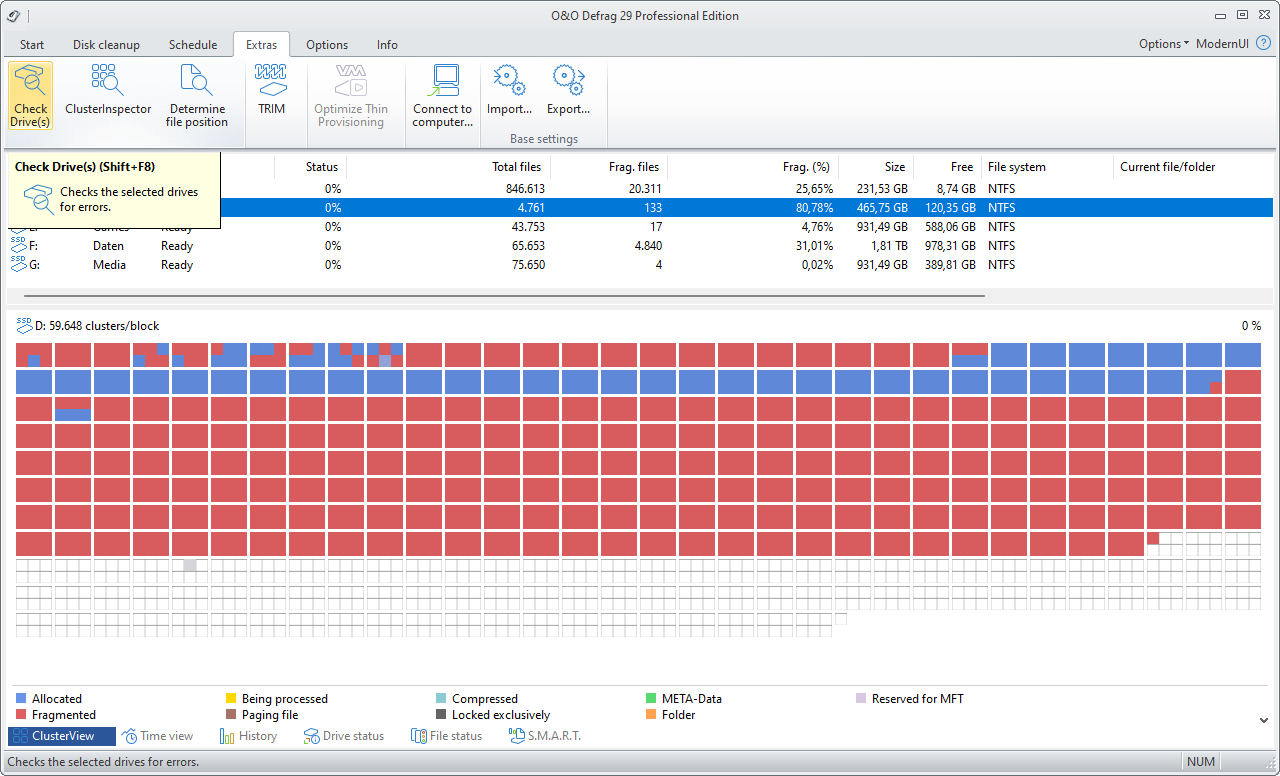
Check Drive(s)
O&O ClusterInspector
With the O&O ClusterInspector, O&O Defrag gives you a convenient tool for checking how the hard disk is being used.
- Access the O&O ClusterInspector by double-clicking on a block in the ClusterView. The O&O ClusterInspector will then show you the files located on the block.
- About 50 file entries will be displayed by default. To show the following files, click the arrows to control the currently selected hard disk section.
| Start cluster | Start of the currently displayed file section on the hard disk |
| Cluster number | Specifies, how many clusters are used by this file in this block |
| Fragments | Number of areas in which this file is divided. A fragment number higher than 1 means that the file is fragmented. |
| Size | Specifies how much physical area space the file occupies on the data volume. |
| File | Absolute path of the file |
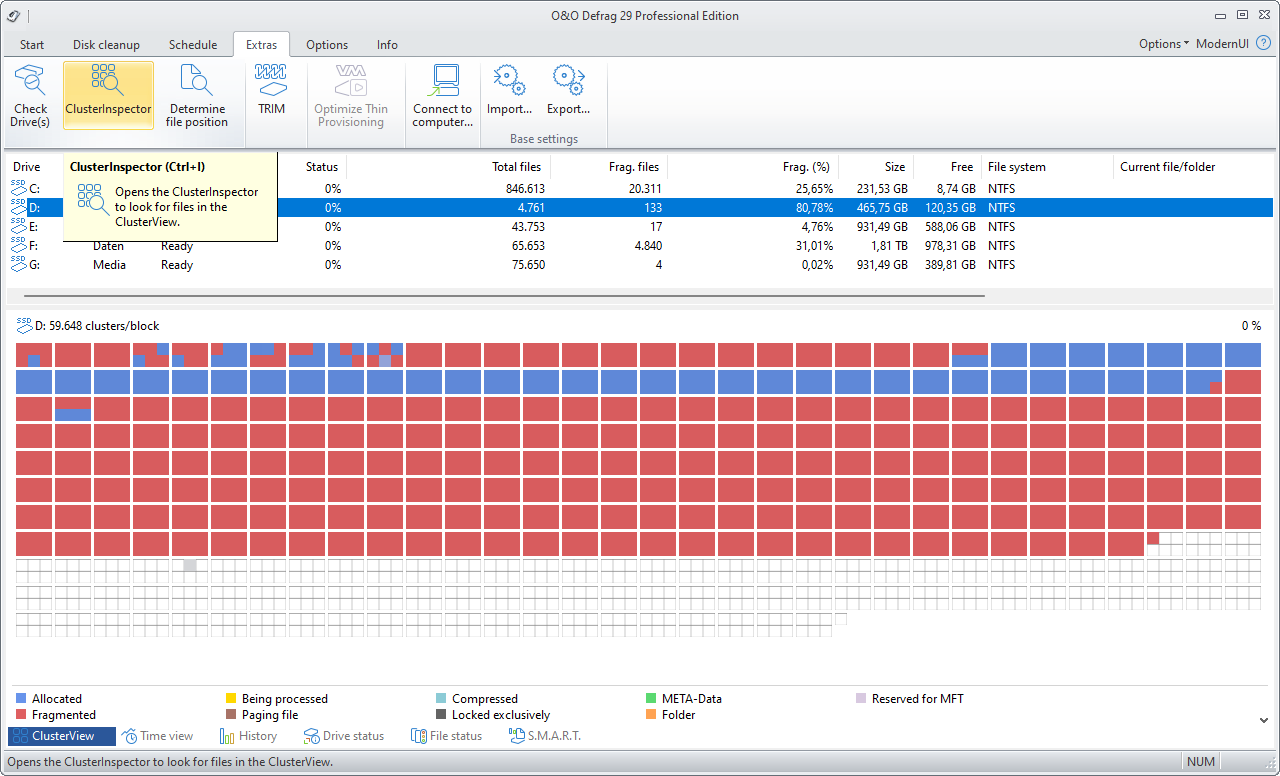
O&O ClusterInspector
Display file position (Details)
Through Details of a file, you will find out, where the individual fragments of the file are located on the hard disk and to
what degree they are fragmented.
1. To find out more on the selected file click on Details.
2. All corresponding file fragments are listed with a cluster number and their size. All clusters used by a file are highlighted in the ClusterView. You will be able to find out the degree to which the scanned file is fragmented, as well as where it is located on the hard disk.
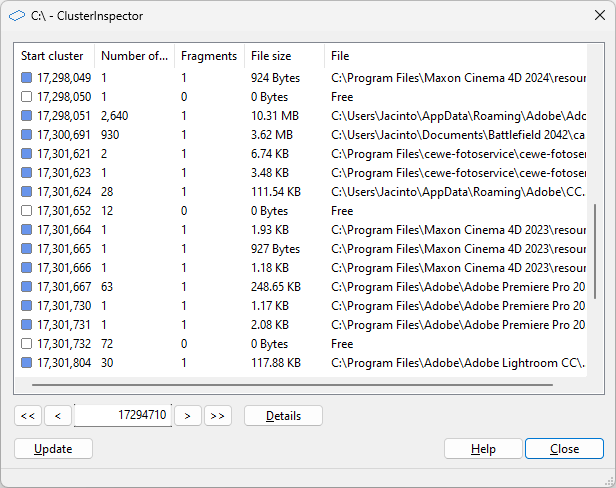
O&O ClusterInspector: Show Details
Determine file position
If you want to find out where and how a certain file is located, click Determine file position in the Ribbon and select a file in the following dialogue. All areas occupied by this file will then be displayed by the ClusterView.
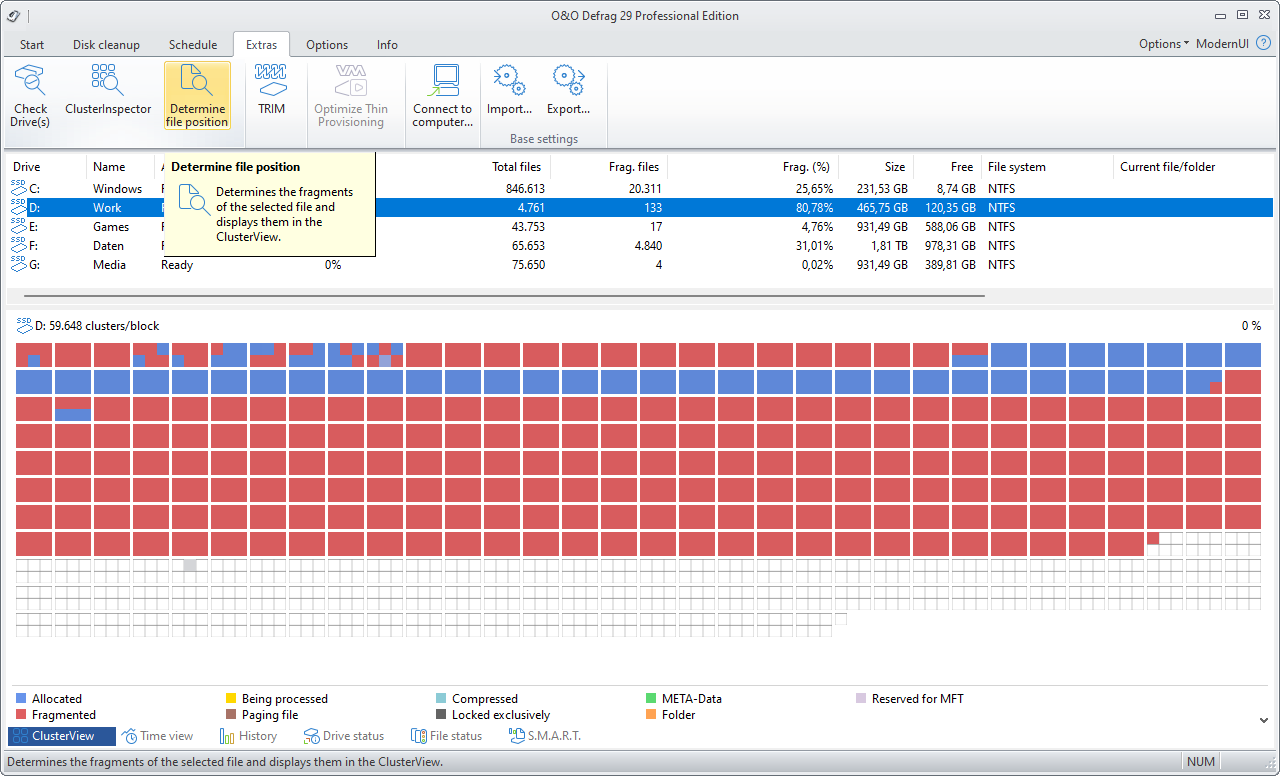
Determine file postition
Thin Provisioning
Thin Provisioning is a process by which virtual machines can allocate available space as needed. Doing this reduces power consumption, space requirements, and the amount of heat generated. O&O Defrag supports Thin Provisioning by reporting changes in the amount of space needed, especially lower amounts of space needed, to virtual machines which then leads to a reduction in the allocated space. This results in less space being needed in the future and less wear on resources.
Import/Export Base settings
With Import.../Export... you can import and export an .xml file with your user-defined configuration of O&O Defrag.
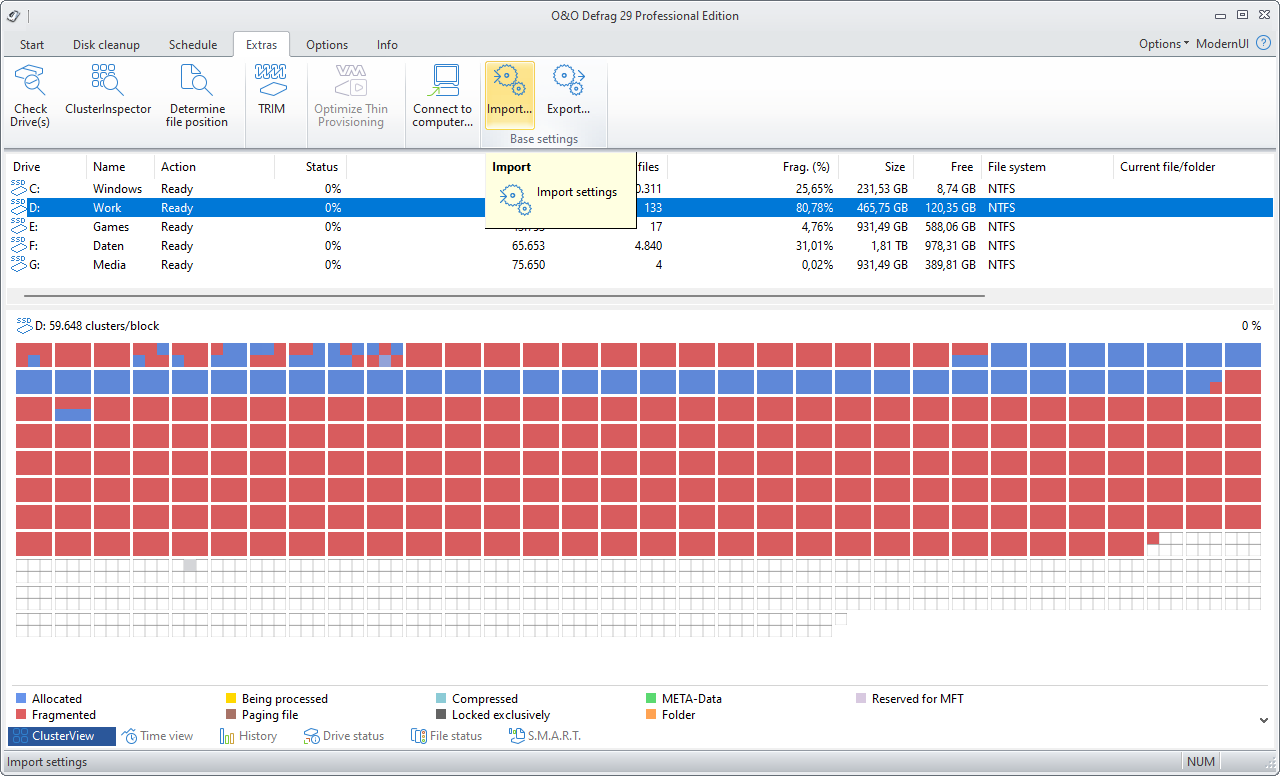
Import/Export Base settings
Exporting a configuration is very easy. In the main program window under Extras click on Export.... Enter the name of the configuration file (e.g. ood_settings.xml). Use the browser to find a location on your computer where you want to save the configuration file.
The steps to import a configuration are similar. In the main program window under Extras click on Import.... Use the browser to find your configuration file that you want to import.